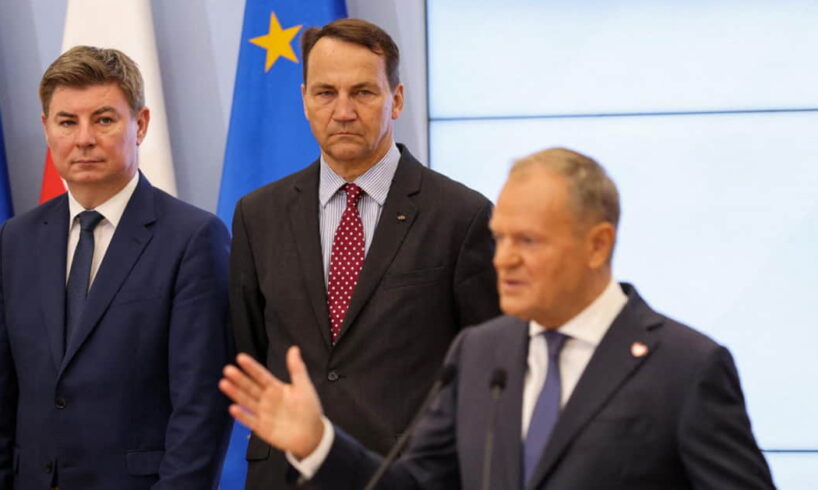
On 6 August, Poland will see the inauguration of its newly elected president, Karol Nawrocki, backed by the opposition Law and Justice party (PiS).
The opposition views the new president as a potential “battering ram” against the government.
In response, Prime Minister Donald Tusk has moved to strengthen his team following the defeat of the pro-government candidate Rafał Trzaskowski in the presidential election – a loss attributed in part to the coalition’s failure to deliver on its promises.
On 23 July, Tusk officially presented the reshuffled Council of Ministers.
The success of this reconfigured government will determine whether the ruling coalition stands a chance of retaining power in the next parliamentary elections, scheduled for 2027.
Read more about the key changes in the Polish government and what Ukraine can expect in terms of resolving bilateral tensions in the article by Yurii Panchenko, European Pravda’s editor: Ministers of revenge and counteroffensive: why Donald Tusk is reshaping the Polish government.
The government reshuffle had been long in the making – it took nearly two months from Tusk’s announcement to the actual changes being implemented.
The main reason for the delay was the need to balance the interests of all parties in the ruling coalition.
Two changes stand out. First, Foreign Minister Radosław Sikorski has not only retained his position but also been appointed Deputy Prime Minister.
Tusk explained this move by citing growing global security challenges that demand a stronger diplomatic response.
However, there is another possible explanation: Sikorski is widely seen as the most likely successor to Tusk. It’s even possible that Tusk himself is not opposed to stepping aside within a year, allowing a new leader to guide the coalition into the next election.
The second major change was the dismissal of Justice Minister Adam Bodnar.
Bodnar had faced fierce criticism for failing to bring criminal charges against former officials from the previous administration.
He has been replaced by Judge Waldemar Żurek, who reportedly has personal motives for seeking justice against the former ruling party.
Another sign that Tusk’s new government is focusing on holding its predecessors accountable is the replacement of the Minister of the Interior. Marcin Kierwiński will now assume the role, replacing Tomasz Siemoniak.
Siemoniak was known for maintaining good relations with many figures from the opposition Law and Justice party.
Besides the Foreign Ministry, one of the most important positions for Ukraine is the Minister of Defense. This role remains unchanged: Władysław Kosiniak-Kamysz, leader of the Polish People’s Party, retains the post and also stays on as Deputy Prime Minister.
Unlike Sikorski, Kosiniak-Kamysz is not considered a particularly Ukraine-friendly figure, having made unfriendly statements about the country in the past.
Another key portfolio held by the Polish People’s Party is the Ministry of Agriculture. While the party kept the post, its head has changed: Stefan Krajewski, a member of the Sejm, has replaced Czesław Siekierski.
It is still too early to tell whether this change will facilitate Ukrainian-Polish negotiations on agricultural issues.
Still, there may be a chance for improvement. Last month, Poland’s controversial Deputy Agriculture Minister, Michał Kołodziejczak, known for his anti-Ukrainian rhetoric and leadership of the Agrounia movement, left his post.
In sum, the new president and his team will now face off against a revamped government led by Donald Tusk, one that appears more determined and ready to act decisively.
If you notice an error, select the required text and press Ctrl + Enter to report it to the editors.





